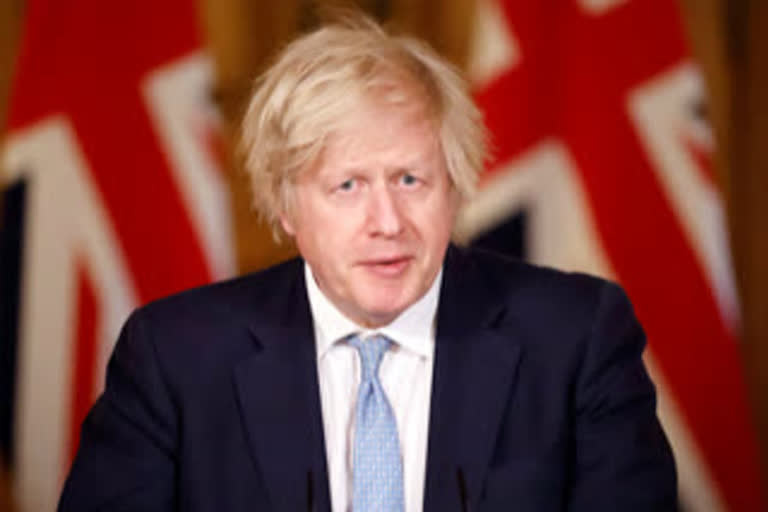London: British Prime Minister Boris Johnson is expected to ask leaders of Canada, France, Germany, Italy, Japan and the US to continue to stand by the people of Afghanistan and step up support for refugees and humanitarian aid when he chairs an emergency meeting of the G7 Tuesday.
He is expected to urge the other six members of the the group of the world's wealthiest democracies to match the UK’s commitments on aid and the resettlement of those most in need, in order to protect human rights and contribute to the stability of the region following the Taliban takeover of Afghanistan.
“Our first priority is to complete the evacuation of our citizens and those Afghans who have assisted our efforts over the last 20 years – but as we look ahead to the next phase, it’s vital we come together as an international community and agree a joint approach for the longer term,” Johnson said in a statement Tuesday ahead of the meeting.
Also read: Evacuation from Afghanistan: Air India flight with 78 people lands at Delhi airport
“That’s why I’ve called an emergency meeting of the G7 – to coordinate our response to the immediate crisis, to reaffirm our commitment to the Afghan people, and to ask our international partners to match the UK’s commitments to support those in need.”
Johnson said that together with their partners and allies, the G7 countries “will continue to use every humanitarian and diplomatic lever to safeguard human rights and protect the gains made over the last two decades”.
“The Taliban will be judged by their deeds and not their words,” he added.
Also read: Taliban takeover prompts fears of a resurgent al-Qaida
The meeting, to be held via video-conferencing, will also be attended by the Secretaries-General of the UN and NATO.
Johnson had earlier set out a five-point plan for addressing the risk of humanitarian crisis in Afghanistan. The plan has five parts: immediately helping those to whom the G7 nations have direct obligations; protecting the countries against any threat from terrorism; supporting Afghan people in the region through humanitarian and development assistance; creating safe and legal routes to resettle Afghans in need; and developing a clear plan for dealing with the new Afghan regime in a unified and concerted way.



